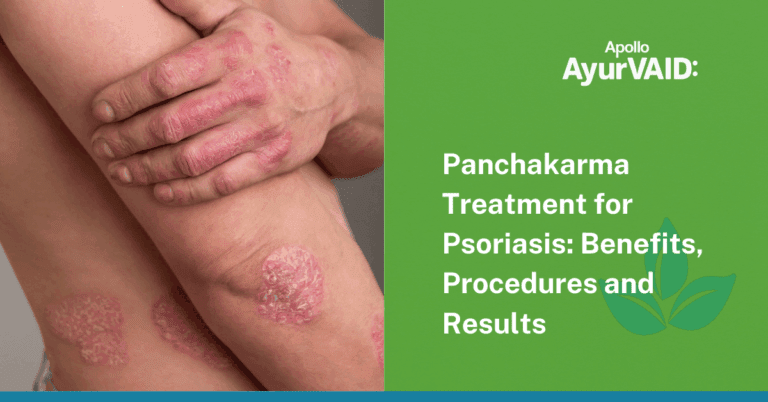Living with Gastro-Esophageal Reflux Disease (GERD) can be a challenging experience, characterised by uncomfortable symptoms like a burning sensation in your chest (heartburn), indigestion, and frequent acidic burping. While occasional heartburn is common, frequent occurrences, especially more than twice a week or those interfering with daily activities, may indicate GERD. Managing this chronic digestive ailment often involves a multi-faceted approach, with dietary modifications playing a pivotal role. Developing an effective GERD diet, understanding what to limit or avoid, and adhering to a structured GERD diet chart are fundamental steps toward finding relief and improving overall digestive health. A well-thought-out GERD diet plan is essential, and for some, even a 7-day GERD diet plan can serve as a beneficial starting point for a comprehensive GERD treatment diet.

Understanding GERD from an Ayurveda Perspective
In Ayurveda, GERD symptoms are commonly attributed to Amlapitta, which is a condition arising due to an agitated Pitta dosha. This dosha imbalance can occur due to reasons like inappropriate mixing of foods (viruddha ahara), unclean foods (dushta ahara), and the intake of too many sour (atyamla ahara), spicy (vidahi ahara), or Pitta-evoking foods (pittala ahara). An impaired digestive fire results in faulty digestion and the production of toxic waste (Ama), which further contaminates Pitta, resulting in acidity and other symptoms such as heartburn, sour belching, and indigestion. Ayurveda addresses this heightened Pitta by pacifying it, re-establishing balance in the digestive system, and guarding the digestive system.
As per Ayurveda, barley, wheat, green gram, old red rice, boiled and cooled water, sugar, honey, bitter gourd, the flower of the banana plant, old ash gourd, and pomegranate are mentioned as pathya foods, i.e., wholesome diet.
Foods to Limit or Avoid: Building Your GERD Diet
The foundation of any successful GERD treatment diet is to find and avoid trigger foods that make symptoms worse. Many substances and categories of food may cause acid reflux by relaxing the lower esophageal sphincter (LES), stimulating stomach acid output, or irritating the lining of the oesophagus.
- Fried, Fatty, and Oily Foods: These foods are frequent causes of heartburn. They slow gastric emptying and unwind the LES, making it easier for stomach acid to flow back into the oesophagus.
- Spicy and Acidic Foods: Restriction of strongly spicy, sour, and salty items is important. This involves strong spices such as chilli, cinnamon, clove, mustard, and garlic. Processed foods containing a high percentage of stabilisers, colouring agents, and preservatives may irritate the stomach if consumed for a long time. Tomato and tomato sauce, vinegar, and pepper are also recognised as triggers.
- Caffeine and Fizzy Drinks: Tea, coffee, and fizzy drinks may exacerbate acid reflux. Strong coffee and tea are especially said to be avoided.
- Alcohol: Alcoholic drinks may weaken the LES and stimulate the release of more acid, causing more frequent reflux attacks.
- Chocolate and Mint: Both chocolate and peppermint can cause heartburn in a lot of people.
- Onions and Garlic: They are often reported as typical heartburn inducers and thus must be restricted or entirely avoided in a GERD diet.
- Some dairy products, such as sour curd and milk, can trigger GERD. Sesame, black gram, and horse gram also need to be avoided.
- Heavy and Irregular Meals: Heavy meals may cause vomiting or nausea, and having food at irregular times or before the previous food is digested can stimulate excessive secretion of acid. Overeating must be avoided.
- Incompatible and Polluted Foods: As per Ayurveda, an incompatible food mix (such as pizza or a burger followed by aerated juice or milkshakes) may result in maldigestion and augmented Pitta. Contaminated food from unhygienic sources also irritates the gut and stomach.
- Other Triggers: Fast foods, salads and cheeses, candies, and butter are listed as foods to be avoided. Long-term use of painkillers is an important modern aetiology of gastritis, which usually accompanies acid reflux.
Ayurveda also recommends avoiding the consumption of sesame seeds, food items prepared using sesame seeds, horse gram, urad dal, and food items using urad dal, such as idli, dosa, and other fermented liquids, such as pickles and pickled vegetables. This complete list is the foundation for a GERD diet chart for people suffering from the condition.
Lifestyle Modifications: An Integral Part of Your GERD Treatment Diet
In addition to particular foods, lifestyle modifications are also important for controlling GERD symptoms and must be incorporated into any GERD diet plan.
- Meal Portions and Timing: Have small, frequent meals rather than large meals to avoid overeating and put less pressure on the stomach.
- Careful Eating: Eat slowly and do not rush your meals. This helps digestion and avoids gulping air.
- Post-Meal Posture: Avoid lying down after meals; at least 2-3 hours should pass before bedtime. While lying down, the left lateral recumbent position is ideal.
- Elevate Bed Head: Elevate the head of your bed to prevent acid from flowing back into the oesophagus while asleep.
- Weight Management: Being overweight exerts pressure on the abdomen, and it raises the likelihood of acid reflux. A healthy weight is important.
- Clothing: Wear loose and comfortable clothes that do not compress your abdomen.
- Stress Management: High stress and anxiety levels increase acid reflux symptoms by affecting digestion and elevating stomach acid secretion. Yoga, pranayama, and meditation can control stress.
- Do not fast: Skipping meals aggravates gastritis since gastric juices are secreted at fixed intervals and, if not utilised, can irritate the lining of the stomach.
- Other Practice: Do not smoke and chew tobacco, since they lead to acid reflux. Avoid exposure to direct sunlight since it can raise Pitta. Drink lots of water and fluids, and exercise regularly.
Beneficial Foods to Include in Your GERD Diet Plan
Although the emphasis is usually placed on what not to eat, certain foods can help prevent and cure acid reflux symptoms as well, adding to a well-rounded GERD diet.
- Alkaline Foods: Potatoes are alkaline and can assist in cutting acids. Bananas have natural antacid properties because of their high potassium levels, which assist in decreasing acid levels.
- Fruits: Consuming pomegranate (fruit or juice) prevents acid reflux. Amla juice (Indian gooseberry) or fresh fruit early morning can also prevent reflux. Ripened papaya calms the stomach and facilitates digestion. Apples, particularly after dinner, prevent acid reflux. Sweet lime, grapes, and figs are also recommended.
- Probiotic Foods: Probiotics in yogurt (curds) support healthy digestion and help in nutrient absorption. Make sure that the curd isn’t fermented more or too sour.
- Spices: Boiling smashed green cardamom in water, or having tea prepared with jeera (cumin seeds) or mint leaves, may reduce acid secretion and calm the stomach. Soaking the fenugreek seeds overnight and having the strained water in the morning fortifies the digestion. Coriander is also a natural coolant.
- Alternative Remedies: Organic honey, particularly at night or diluted with water, will neutralise the stomach acids. Coconut water also supports pH balance. Chewing saunf (fennel seeds) before meals can also help.
7-Day GERD Diet Plan
| Day | Breakfast | Lunch | Snacks (Mid-morning / Evening) | Dinner |
|---|---|---|---|---|
| Day 1 | Steamed red rice flakes (poha) with cumin & coriander | Old red rice + bottle gourd curry + buttermilk | 1 ripe banana / coconut water or Roasted makhana + fennel tea |
Barley khichdi + ash gourd curry + 1 tsp ghee |
| Day 2 | Steamed idiyappam + coconut & jaggery | Wheat chapati + green gram curry + ridge gourd sabji | Pomegranate juice or Amla juice |
Rice + bitter gourd curry + banana stem sabji |
| Day 3 | Boiled mashed sweet potato + salt | Millet roti + ash gourd chutney or curry + rice | Warm coriander water + fig Saunf tea |
Rice gruel + cumin + stir-fried banana flower |
| Day 4 | Overcooked oats + jaggery + raisins | Dalia with bottle gourd + carrot + mild curd (not sour) | Stewed apple Jeera water + papaya cubes |
Barley soup + moong dal + boiled snake gourd |
| Day 5 | Rice porridge + cow’s ghee | Green gram curry + phulka + sautéed pumpkin | Soaked dry figs + banana | Red rice + boiled yam + coriander chutney |
| Day 6 | Old rice dosa (no urad dal) + coconut chutney | Barley khichdi + ash gourd + bottle gourd sabzi + sweet lime juice | Amla candy + warm water Saunf + cardamom tea |
Moong soup + rice + cooked ridge gourd |
| Day 7 | Mashed raw banana + honey | Wheat phulka + moong dal + ash gourd sabzi | Diluted amla juice Dry ginger-coriander-fennel tea |
Light red rice gruel + 1 tsp ghee |
Foods You Can Rotate Across Days
- Grains: Barley, wheat, old red rice, millet (moderate)
- Vegetables: Ash gourd, bottle gourd, ridge gourd, pumpkin, banana stem, bitter gourd (well-cooked)
- Fruits: Banana, pomegranate, sweet lime, papaya, apple, fig, grapes (non-citrusy, non-sour)
- Herbs & Spices: Fennel, coriander, cardamom, cumin, mint, turmeric (no chili, mustard, clove, garlic)
Conclusion
Home remedies and dietary modifications work, but see a qualified doctor if there are repeated symptoms or other health issues since untreated GERD can result in complications.
Effective management of GERD depends upon a complete GERD diet and lifestyle plan. Carefully adhering to an individually tailored GERD diet chart, restricting or excluding triggers, introducing calming foods, and practicing mindful living practices will greatly reduce symptoms and enhance digestive health. Never forget to consult a qualified doctor for customised advice based on your condition and create the most successful GERD treatment diet.







